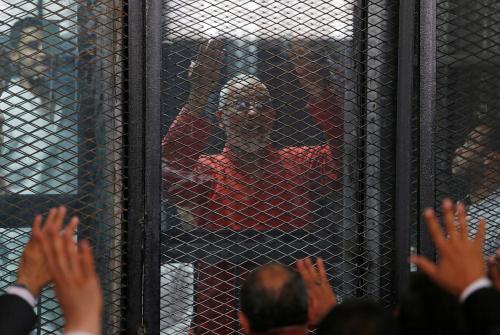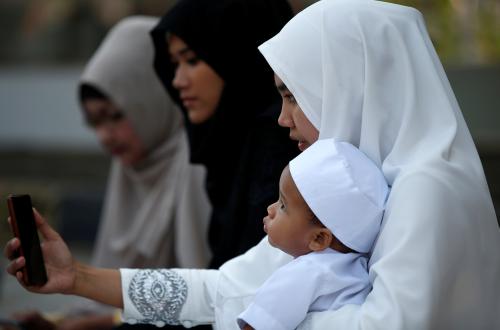We continue here Brookings’s ongoing video interview series with Islamist leaders and activists following an April 2016 conference in Istanbul, as part of our Rethinking Political Islam initiative. We asked each participant to discuss the state of his or her movement and reflect on lessons learned from the crises of the Arab Spring era, including the rise of ISIS, the Syrian civil war, and the 2013 military coup in Egypt. We plan to release these videos over the coming months as part of our “Islamists on Islamism today” series. Our first interview was with Abdelouahad Motaouakal, head of the political section of Morocco’s largest Islamist movement, Adl wal Ihsane.
Up next is Asif Luqman Qazi, a senior leader within Jamaat-e-Islami, often considered Pakistan’s Muslim Brotherhood analogue and one of the country’s most influential Islamist organizations. He is also the Executive Director of the Islamabad-based Center for Discussions and Solutions, which works to foster dialogue on issues of strategic importance to Pakistan.
Born in Peshawar, Pakistan, Qazi received Master’s degrees in Economics from both International Islamic University Islamabad and Boston University. He also attended Baruch College in New York City for further graduate study. After completing his studies, he returned to Pakistan to assist his father, the late Qazi Hussain Ahmad, who was head of Jamaat-e-Islami and a member of parliament. He remained Special Assistant to Ahmad for ten years. He has also served as Deputy Director for Foreign Affairs in Jamaat-e-Islami, and has been elected to both the central and provincial shura (consultative councils) of the organization.
Qazi begins the interview by rejecting the inclusion of political, missionary, and militant organizations as all falling under the category of “political Islam.” Later, Qazi discusses the stark contrast between Jamaat-e-Islami’s amicable relationship with Pakistan’s military and Islamists’ contentious relationships with militaries in other countries such as Egypt. Qazi then reflects on the apparent contradiction in the group’s considerable influence in shaping the national agenda even while failing to achieve electoral successes. At the end of the interview, he speaks on Pakistan’s controversial anti-blasphemy laws.
The Brookings Institution is committed to quality, independence, and impact.
We are supported by a diverse array of funders. In line with our values and policies, each Brookings publication represents the sole views of its author(s).










Commentary
Islamists on Islamism: An interview with Asif Qazi, leader in Pakistan’s Jamaat-e-Islami
November 30, 2016